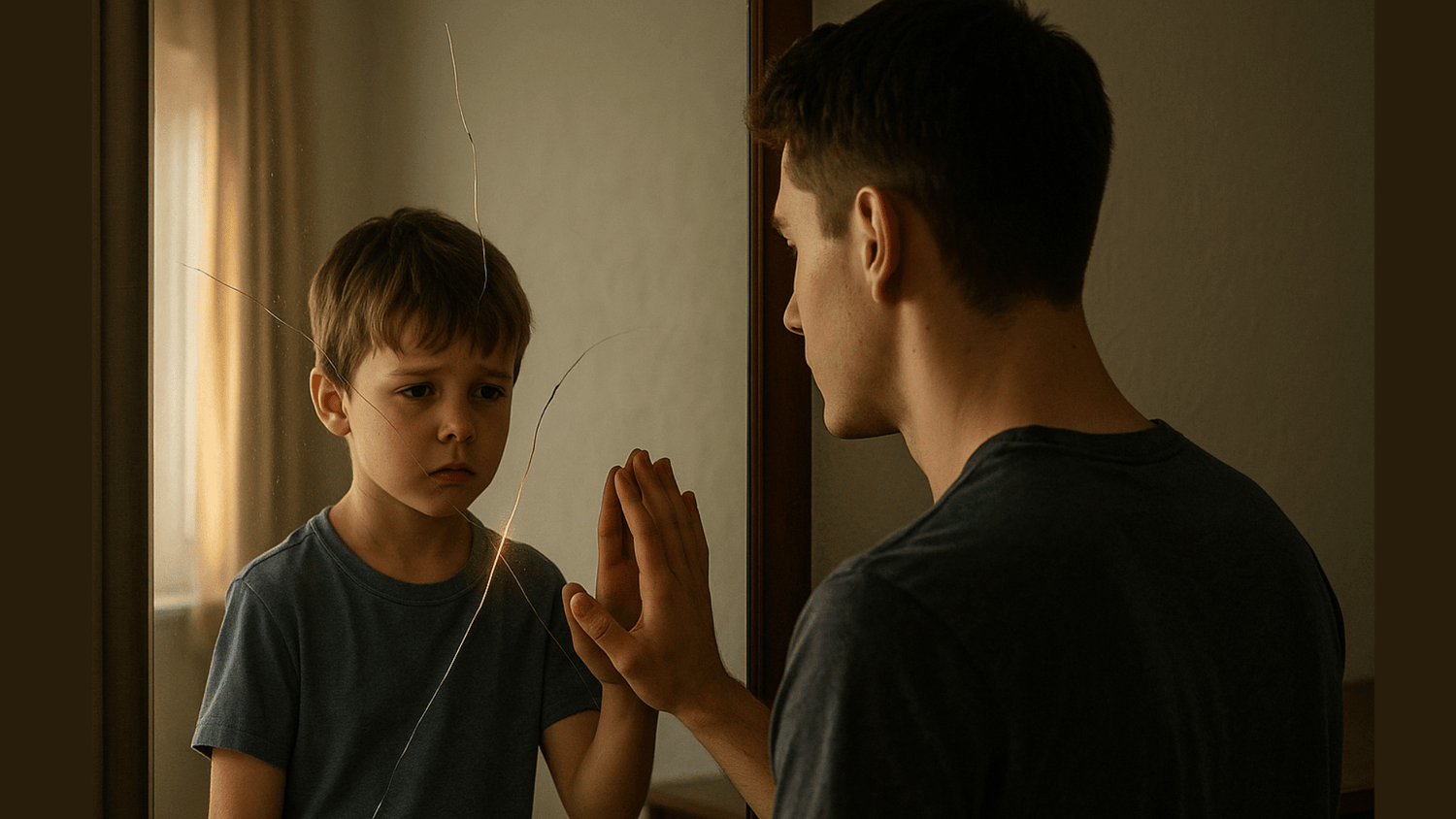Fatherless and Fighting
Why Missing Dads Make Men Chase Control and How to Break Free
Eric Miller

When a father is absent, whether he physically leaves or emotionally checks out the impact goes far deeper than most young men realize. It’s not just about missing a role model. It’s about missing the first blueprint of how to trust, how to love, and how to see yourself. That empty space is called the Father Wound, and it quietly shapes who you become in relationships, in leadership, and even in who you follow.
The Hidden Fallout of a Missing Dad
The Father Wound often shows up in ways that don’t look like “wounds” at all. Maybe it’s the need to prove yourself, always grinding harder than everyone else because you feel like you’re never enough. Maybe it’s anger, that constant simmer just under the surface or the inability to let people close without pushing them away.
It can also show up in subtler ways: mistrusting authority, fearing intimacy, or tying your worth to success, status, or strength. Many men with a Father Wound carry an internal belief that love must be earned through achievements, control, or toughness — instead of something freely given.
Why the “Strongman” Feels So Safe
This unhealed wound doesn’t just shape personal behavior, it shapes society. Men who grew up without a consistent, nurturing father are more likely to be drawn toward rigid authority figures, domineering bosses, or authoritarian political leaders.
Why? Because when chaos defined your childhood, control feels like comfort. When protection was absent, power feels like love. That’s why so many men fall for the “alpha” influencers online or rally behind strongman politicians. They’re not attracted to cruelty, and they’re drawn to familiarity. It feels like the authority they never had, even if it’s toxic.
And it goes deeper than politics or Instagram content. The Father Wound shapes how men define strength, how they seek approval, and how they interpret leadership. It’s why some men confuse respect with fear or why they mistake domination for confidence. It’s also why so many end up repeating cycles of absence and avoidance in their own relationships, even when they swear, they’ll never be like their fathers.
A Crossroads Moment
If any of this feels uncomfortably familiar, you’re not alone and it’s not too late. The truth is, the Father Wound doesn’t have to be permanent. Many men believe they’re doomed to carry it forever, but that’s not the case. With the right awareness, support, and intention, that wound can become a doorway to deeper strength, authentic relationships, and a new understanding of what masculinity truly means.
The first step? Understanding how this invisible force has been shaping your life and seeing that it doesn’t have to continue. The patterns you’re stuck in right now aren’t fixed; they’re learned. And what’s learned can be unlearned.
The journey forward starts with seeing the Father Wound for what it is: not a weakness, but a signal that there’s more to you than the story you’ve been living. The question is, will you keep carrying that story into the future or will you write a new one?
👉 Ready to see what that new story can look like?
Read the full article, Daddy Void, where I (Eric Miller) shares my powerful journey of breaking free from the Father Wound and the steps you can take to change the direction of your life for good.
